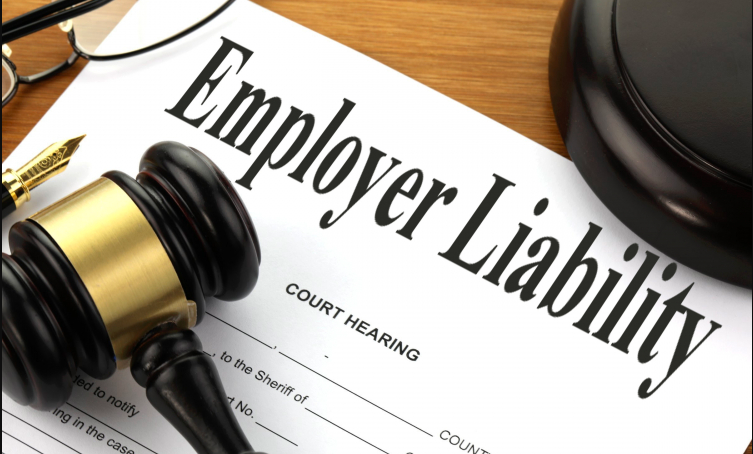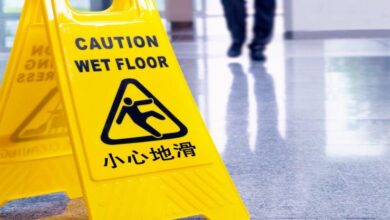Employers Liability vs Workers Comp: What’s the Difference?

The world of work is always changing. Knowing about things like employer’s liability and workers’ compensation is important. For those who aren’t sure, these are two big parts of working life that can be a bit confusing. But don’t worry; this article will help clarify the difference between the two. The end goal is for all employers and employees to know what they’re dealing with relating to their own safety at work. So stick around because this easy-to-understand guide will give you some clear insights into how these things work.
1. Workers Compensation: Safeguarding Employee Welfare
Think of Workers’ Compensation as a special kind of insurance. It helps workers who have been hurt while performing job-related duties. This could be due to accidents, illnesses or injuries which happen at work or as a part of the job. By considering a situation, you will better understand what this entails. Imagine someone who works in a factory. Now, factories can sometimes be dangerous places. What if this person gets injured by machinery? They might need medical treatment.
They might even have to miss work for a while until they recover completely. That’s where Workers’ Compensation steps in. This insurance helps them cover those daunting hospital bills and compensates for the time they missed at work due to their injury. It fills up that financial gap created by their unfortunate circumstance, protecting numerous workers across various workplaces.
2. Employers Liability: Navigating Legal Responsibilities
Talking about Employers’ Liability, you might ask, what exactly is it? Well, imagine you own a business. Your biggest asset is your employees, who keep the day-to-day operations running smoothly. But accidents can happen, and when they do, you are responsible for your workers. Therefore, every time an employee gets hurt at work because of negligence on your part, that’s where Employers’ Liability comes in. Employers’ Liability mainly focuses on defending employers from lawsuits or employee claims. The lawsuit may stem from injuries sustained due to oversight, poor infrastructure or negligence within the workplace environment.
3. Key Differences: Unraveling the Nuances
Understanding employers liability vs workers comp and how they work is important when establishing a company. Workers’ compensation is a type of insurance that is obligatory in most states. It acts as a security blanket for injured or ill employees due to work-related circumstances. The essence of this coverage lies in its no-fault basis—you file a claim, it gets paid.
No need to figure out who messed up or why; it’s all about protecting the worker. While workers’ compensation catches the direct damage, such as medical bills and lost wages, employers’ liability grabs onto those legal aspects that sometimes follow suit—things like suffering, pain, and more long-term damages. If an employee believes their injury resulted from employer negligence, here is where employers’ liability comes into play. While worker’s compensation ensures an immediate response to employees’ short-term needs, employers’ liability fields those legal hurdles caused by long-term complications or legal disputes over negligence.
Read also: The Critical Role of Criminal History Checks in Employment and Community Roles
4. Legal Framework: Compliance and Consequences
In the world of work, employer’s liability and workers’ compensation matter the most. These aren’t just big words but important legal areas for companies. Employer’s liability and workers’ comp are like rules that bosses must follow to protect their workers. It’s like wearing a helmet when riding a bike–you do it not only because it’s the rule but also to keep safe in case you fall. If companies don’t stick to these rules, they could end up in hot water. It might lead to fines or maybe even court cases. So understanding every detail about them is a bit important.
5. Future Trends and Developments
Across the globe, worker protection is changing significantly. In the future, you can expect to see exciting trends in worker’s comp and employers’ liability. Business owners are always looking for new ways to keep their employees safe. And why wouldn’t they? A safe workspace not only lowers costs from worker compensation claims but also boosts employee morale and productivity. It’s a win-win scenario.
Conclusion
Things at work come in variable shades, and employers’ liability and workers’ compensation are among the most important. These two things act like guards of workplace safety. When you know how they differ, you are one step ahead. It’s about an environment that says yes to safety and well-being. Think about it as a journey for better decision-making. It’s not only a choice but something that holds it all together. The welfare of everyone matters, from the boss to the workers. This leads to a workplace that speaks of high standards.



